From Coffee Shop to Salesforce’s second largest acquisition - My Journey Building Own Company
Sam Gutmann20 Aug 2025This article is based on an interview conducted with Sam Gutmann, who served as CEO of Own Company from 2015 to 2024, leading the company from a small startup to its acquisition by Salesforce. He is currently enjoying a well-deserved break in retirement (sort of).Vertex Ventures Israel was an early investor in Own Company.
I never planned to become the CEO of Own Company. In fact, when I stood in that coffee shop in Herzliya—a city I'd never even heard of—I was supposed to be on vacation with my family in Israel. But sometimes the best opportunities come when you least expect them.

Let me back up a bit. I wasn't a first-time founder when I joined Own. I'd already sold my first backup company and spent some time in venture capital. That experience taught me something crucial: my goal every day was to screw up only 49% of my decisions and hopefully not repeat the same mistakes. It sounds modest, but trust me, in the startup world, that's actually ambitious.
The whole thing started because I called up an old friend, Ori Yankelev, who'd just moved to Israel. He'd worked at the venture fund that invested in my first company, then came to work for me directly. When I left, he went back to venture, quit his job, travelled the world for a year, and settled in Israel. I figured we'd catch up over a beer while I was visiting.
"I'm meeting with some guys who started a backup company," he told me. "Want to tag along on my unofficial job interview?"
It was weird, but why not? So there I was, asking our tour van driver to pull over in this random city, walking into a coffee shop to meet Ariel Berkman and his co-founders who'd been working on this part-time project called Own Backup.
Halfway through what was supposed to be a one-hour meeting, they turned to Ori and said, "Please stop selling yourself. We're not hiring a sales guy." Then they looked at me: "We're actually hiring a CEO. Are you interested?" (Ori did come aboard as VP Sales and made his way up to Chief Business Officer.)
That one-hour coffee completely ruined the rest of my vacation. But ten years later, after selling to Salesforce in one of their largest acquisitions, I can say it was worth every sleepless night.
The Four Ingredients of Own Company
When I evaluate any company—whether as an investor or operator—I look for four things. Own Company had all of them:
First, it had to solve a real problem. Customers using Salesforce and other SaaS applications lose data. The same vulnerabilities exist whether your data is on a server in your office, AWS, or Salesforce. I knew this firsthand from implementing Salesforce at my family's import-export business. It was brutal.
Second, the market had to be huge. Everyone thought the backup market for SaaS was tiny—someone bet me it was only $10 million total. I saw it differently. This was a $6 billion addressable market, and it only got bigger.
Third, the technology had to actually work. These guys had been at it since 2011. By the time I met them in October 2014, they'd just landed their first enterprise customer—a nearly six-figure deal protecting 3,000 seats. After 50 small SMB customers paying maybe $100 a month, this was validation.
Fourth, and this is where many startups fail: Could we build a real business here? Not just a feature or product, but an actual business?
Here's the ironic part: At my previous company, one of the first online backup services, someone once wrote "Backup for Salesforce" on our whiteboard during a strategy session. I literally stopped the meeting and said it was the dumbest idea I'd ever heard.
Sometimes you have to eat your words.
Focus is everything
When I joined, Own was backing up social media, Gmail, Salesforce, and had a beta for ServiceNow. One of my first decisions? Shut everything down except Salesforce.
People thought I was crazy. Why limit ourselves? But here's what I learned: Most startups fail because they fail to focus. Steve Jobs said Apple's greatness came not from the products they built, but from the 99 they said no to.
We stayed laser-focused on Salesforce until we hit $100 million in revenue. Only then did we have enough resources—people, money, and time—to think about expansion. That focus was painful but critical.
Building Different - How do we sell?
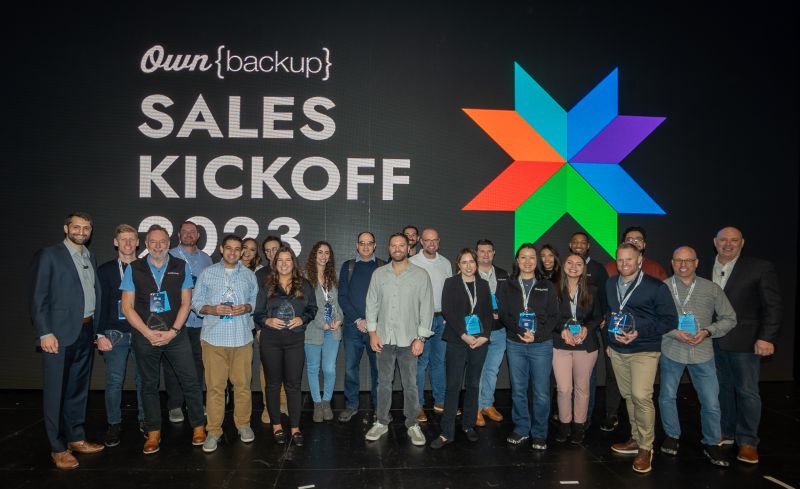 Photo: Own Company Annual Sales Awards, 2023
Photo: Own Company Annual Sales Awards, 2023
The average Israeli startup has 40 employees: 35 engineers in Israel, and the founder moves to the US to do "biz dev" with a couple of people. When we hit 40 employees, we had five engineers and 35 people in go-to-market.
I knew we had a huge market, a real problem, and technology that worked. My job was simple: How do we sell the shit out of it?
This created constant tension. When I'd fly to Israel (seven or eight times a year), the engineering team would complain: "All you care about is salespeople!" Then I'd fly back to the US and hear: "All you care about is the engineers!" When both sides were complaining equally, I figured we'd found the right balance.
The culture we built
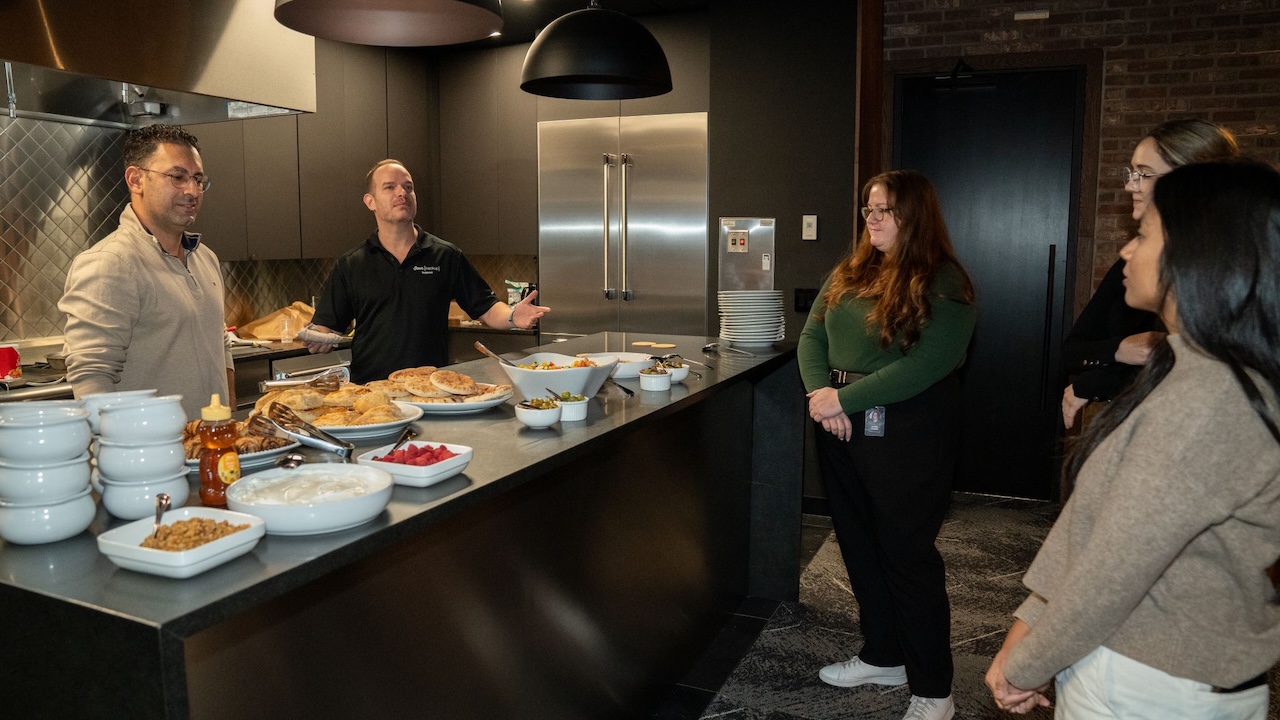 Photo: Own Company Management cooking breakfast for new "Owners"
Photo: Own Company Management cooking breakfast for new "Owners"
Culture wasn't something we outsourced to HR. It was everyone's job. When we created our values, we didn't pull out a dictionary of corporate buzzwords. Instead, we asked: What makes our best employees special? What do our 100X players do differently?
We studied our top performers and wrote down what made them exceptional. That became our values. A few years later, we realized we'd missed one, so we added a fifth. But they came from observing excellence, not from theory.
I ended every new hire bootcamp with this message: "These are our values. It's not my job to make this culture better—it's yours. When a colleague embodies our values, commend them. When they don't, remind them that's not how we work here."
Own Backup wasn't an easy place to work. That was never my goal. My goal was to make it the best job you'd ever had. There's a difference. We had 25 quarters in a row of exceeding our board plan. When you're winning like that, hard work doesn't feel like work. It feels like being part of something special.
The Salesforce Ecosystem Revelation
For years, I was skeptical about building within the Salesforce ecosystem. It felt like dancing in a rowboat with an elephant—you could easily get squished.
Then at a dinner with other Salesforce ecosystem CEOs, someone gave me advice that changed everything: "If you want to succeed in an ecosystem, you have to invest in it."
I thought that was nuts. Wasn't it my job or our head of sales' job to manage that relationship?
But we hired one person whose entire job was interfacing with Salesforce. Eventually, that became a team of 20. The results were immediate and dramatic. We became one of Salesforce's top ISV partners.
The 2022 Reckoning
The market shift in 2022 hit everyone hard. In November 2021, at the Goldman Sachs conference in Vegas, we had 19 meetings in one day. Every single investor asked: "How can you grow faster?" We'd just hit $100 million in ARR on the flight home—my CFO and I celebrated with terrible airplane champagne.
Five months later at the Morgan Stanley conference, every conversation started with: "What's your path to profitability?"
The world had completely changed. We had to adapt, and that meant restructuring. I started at 7 PM on a Sunday with calls to Australia, came back to the office at 2:30 AM for Europe calls, then did US meetings all day. At 4 PM, I did a US all-hands, flew immediately to Tel Aviv for their all-hands, then to Europe. It was brutal, but we owed our team transparency.
When your investor becomes your wingman
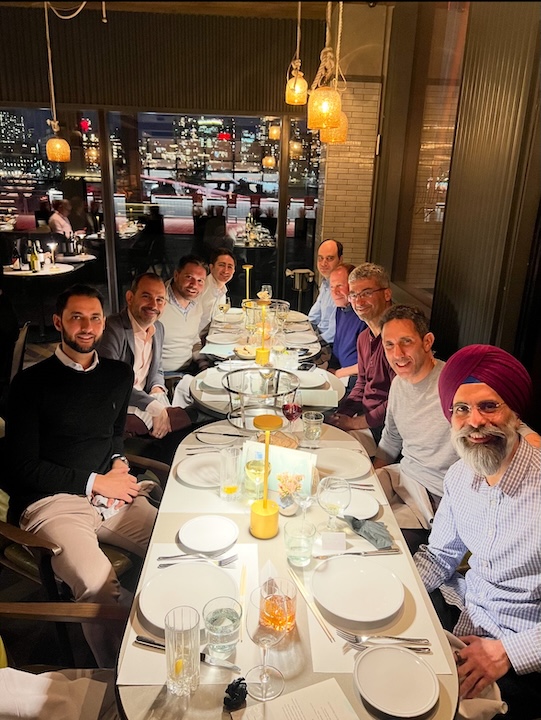
Photo: Dinner with Investors (Aviad - second from the right)
My relationship with Aviad Ariel of Vertex Ventures Israel goes back to the very early days of OwnBackup. He was actually working at a small fund called Horizon at the time, and they wrote us a modest $250,000 convertible note—nothing earth-shattering, but it was money we desperately needed in those scrappy early days. As we continued raising that first real round, Aviad got to know the Vertex team and eventually made the jump there himself. I always joke that it's because of us that he ended up at Vertex, though I'm not sure he appreciates that particular piece of credit.
What made Aviad special wasn't just that he became an investor; he became a true partner and, honestly, a friend. He was part of our journey from those early days in 2015, so he knew everything—every pivot, every personality clash, every small victory that felt massive at the time. That kind of institutional knowledge is invaluable, but what I respected most was his emotional intelligence.
Aviad had this uncanny ability to know exactly when to push and when to back off. I actually looked forward to our board meetings—loved the debates, the dinners, the whole dynamic. But I remember one particular call that was just brutal. Contentious for reasons I can't even recall now, but it left everyone on edge. We hung up, and literally two minutes later, my phone rings. It's Aviad.
"All right, on a scale of zero to a hundred, how mad are you at me?"
He just knew. He could sense when he'd pushed hard enough, and he'd always say something like, "Look, I know you're not comfortable with this, but it's my job to keep pushing until I see that's really enough." That level of self-awareness is rare in any relationship, let alone an investor-founder dynamic. Most investors either don't push at all or don't know when to stop. Aviad had that balance down to an art form.
But beyond the boardroom dynamics, Aviad showed up in ways that went far beyond his fiduciary duty. There were times—especially during the chaos of 2022—when I couldn't be in Israel for crucial all-hands meetings.
The lonely reality of the CEO
Being a CEO is incredibly lonely. The six months between negotiating our sale to Salesforce and closing it were the hardest and least fun of my entire career. I learned a tremendous amount and wouldn't trade it, but it wasn't enjoyable.
When you're in an acquisition, you're negotiating with everyone: the buyer, the banks, every investor (who all have different positions), law firms, accounting firms, and every employee who gets wind of it. Everyone wants to know what's in it for them. There's no one on equal footing with the CEO.
Some investors who'd made many times their investment couldn't understand why we were selling. Others who came in late during the 2021 peak didn't realize how lucky they were to get their money back when most of their peers were taking 50 cents on the dollar.
Why we sold
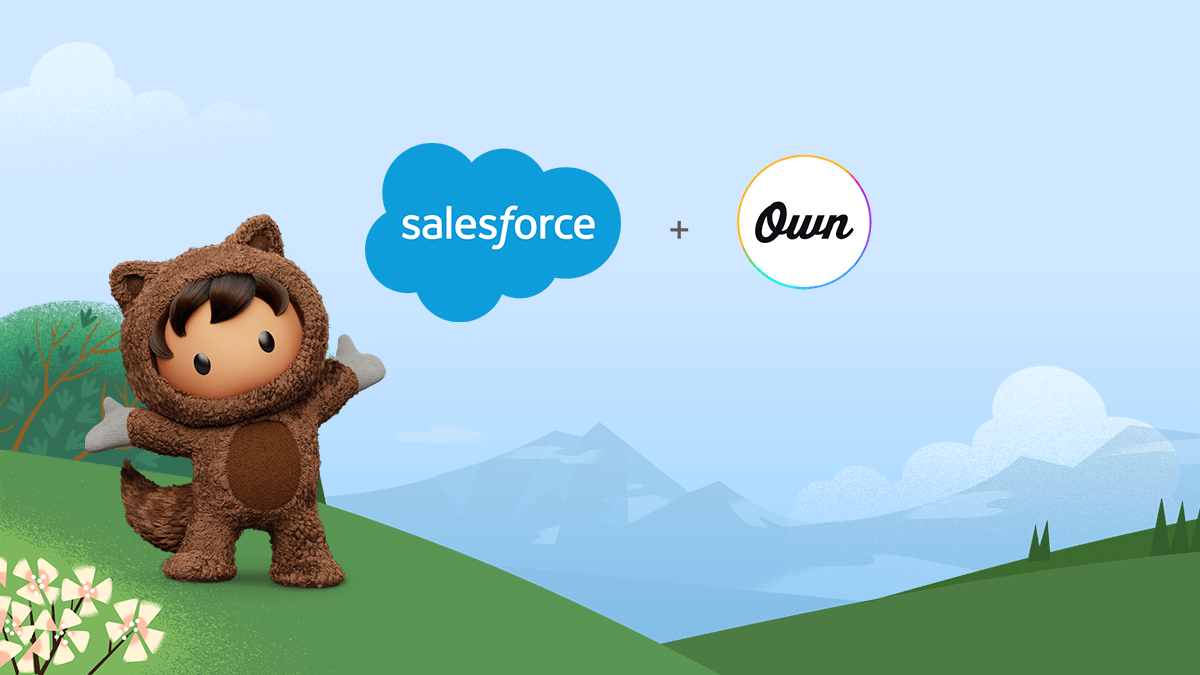
We weren't looking to sell. We were building a great business and expanding beyond Salesforce. But when the offer came, it made sense for everyone—and more importantly, for our mission.
Our vision was simple: Every one of Salesforce's 250,000 customers should have a data protection strategy. We had about 7,000 customers. Combined with all our competitors, the market was still single-digit penetrated.
The best way to get our technology into the hands of those remaining 243,000 customers? Partner with the second-largest software distribution team on the planet.
The Human Impact
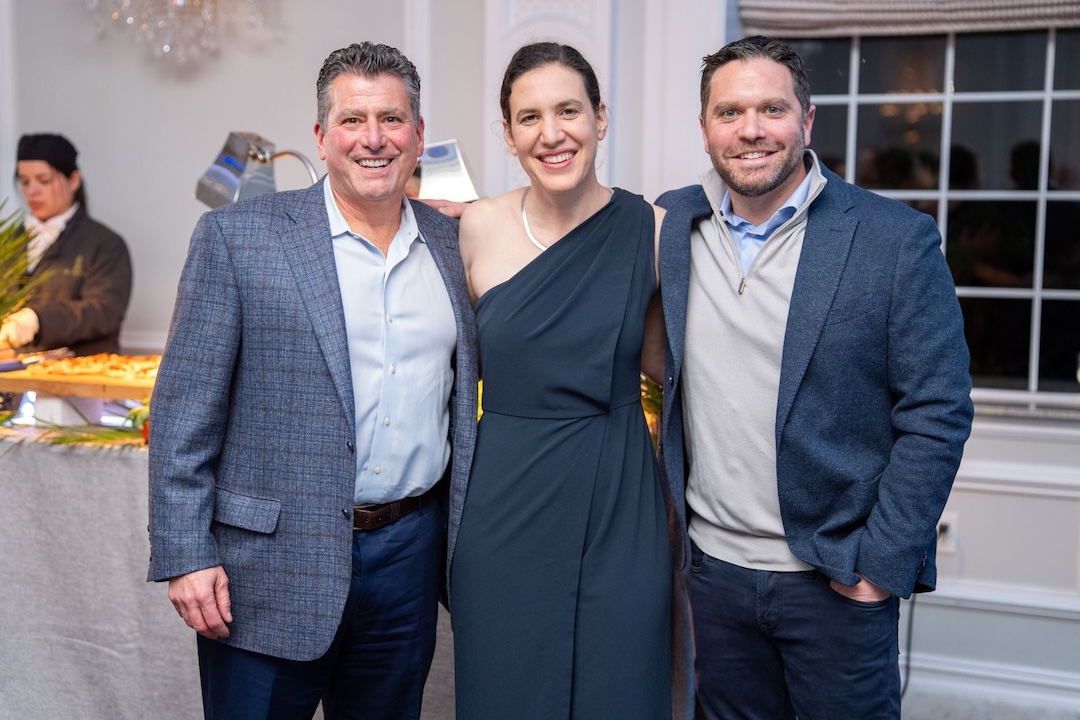 Photo: Own Company’s Holiday Party 2024
Photo: Own Company’s Holiday Party 2024
The most rewarding part wasn't the exit valuation or the strategic win. It was the people whose lives we changed.
We had a junior support rep who couldn't afford a car when he started. A senior employee gave him an old Honda. Years later, he pulled me aside in the parking lot. "I want to show you something," he said, pointing to a brand-new Tesla. "I had nothing when I started here. I was living with my mom, could barely get to work. You made my life happen."
People who were single when they started got married, bought houses, had kids. The acquisition proceeds paid off down payments and changed trajectories. That feels better than any metric or milestone.
Lessons for Founders
Looking back, here's what I'd tell any founder:
- There's no substitute for hard work. I don't know how to do anything at less than 100%. For ten years, my family went to Aruba for two weeks every December. For ten years, I was on my phone while they were on the beach. My kids are begging me not to get another job until after this year's trip. It's consuming, but I don't know another way to build a company of this scale.
- Hire people better than you. My job was theoretically simple: Set a mission and vision big enough to matter, hire people smarter and more experienced than me in every functional area, and make sure they're all rowing in the same direction. First-time founders often worry that experienced people will be bored. I never worried about that. Hire someone who's done what you need to do two years from now—you'll get there faster.
- Focus is everything. We turned down opportunities constantly. We said no to ServiceNow, to Gmail, to social media backups. We said no until we had the resources to say yes properly. Most startups die from lack of focus, not lack of opportunities.
- Invest in relationships. Whether it's your ecosystem partner, your customers, or your team. We had over 500 five-star reviews on the Salesforce AppExchange—three times our nearest competitor. But what made me proud was reading them. Customers mentioned our sales reps by name, thanking them for not overselling. They praised our support team members personally. That doesn't happen by accident.
- Know when to adapt. The only constant in a startup is change. You have to balance consistency for your team with the reality that markets shift, sometimes overnight. Don't change direction every morning, but don't be too proud to pivot when the world changes around you.
The Next Chapter
Am I really retired? My kids hope so, at least until after our Aruba trip. But honestly, I've got at least one or two more companies in me. The first few months after leaving Own were actually more stressful than running the company. I'd wake up with nothing urgent to do, and it felt wrong.
Last Sunday, after my kids left for seven weeks of summer camp, I finally woke up relaxed. I sat by my pool for a couple of hours with genuinely nothing to do. It lasted about four days before I started getting itchy again.
The truth is, despite the stress, the sleepless nights, the tough decisions, and the lonely moments, there's nothing like building something from scratch. There's nothing like watching a part-time project in Israel become one of Salesforce's largest acquisitions. There's nothing like knowing you've solved a real problem for thousands of customers and changed hundreds of lives in the process.
Would I do it again?
In a heartbeat. In fact, I'm pretty sure I will.
/f/233941/1920x1080/43195e83a0/sam-own.png)